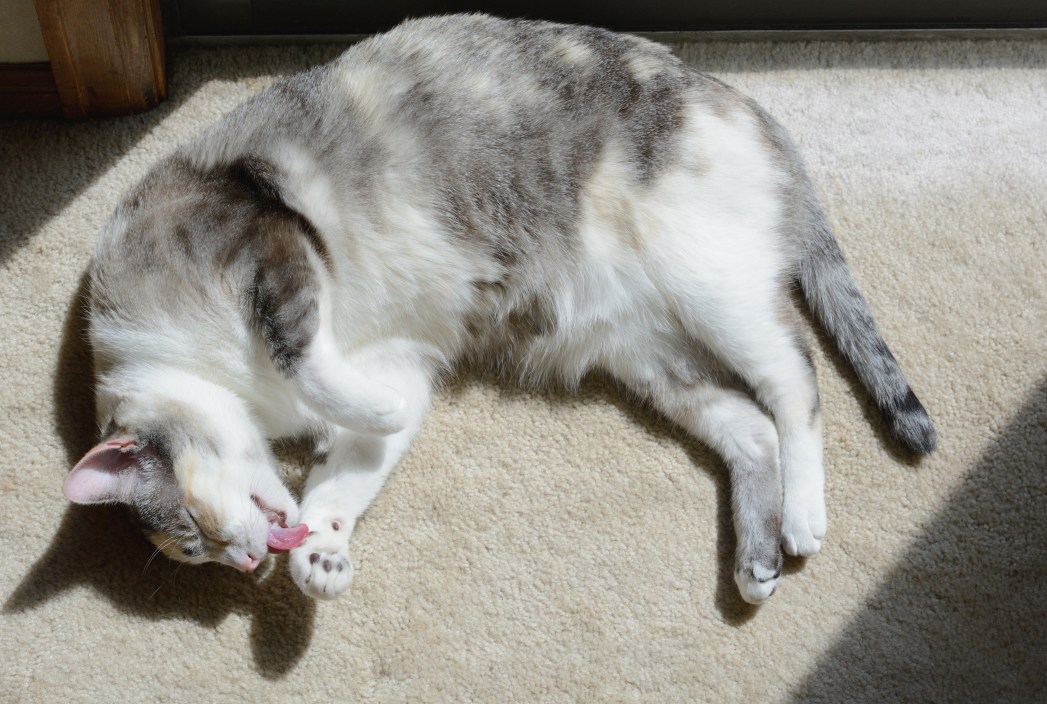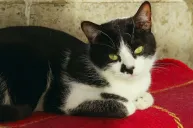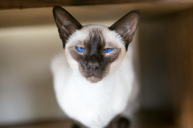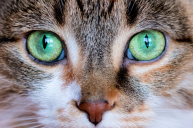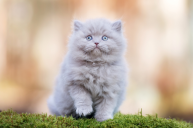Calico cats, a favorite among cat lovers, are always considered one of the most beautiful feline pets. But some consider the even more rare cat of dilute calico even more desirable.
The typical calico cat has perhaps the most distinctive cat coat pattern around with three different colors: white, black, and orange (which is sometimes referred to as red or caramel). Their beautiful spots are an eye-catching mix, and they also tend to be the sweetest and among the most affectionate cats, temperament-wise. These pretty cats are typically mostly white cats with large patches or spots of black and orange coloring against the white fur.
While calico is a beautiful color pattern, it can only be outdone by its lighter cousin: the dilute calico cat.
What's the Difference Between Calico and Dilute Calico?
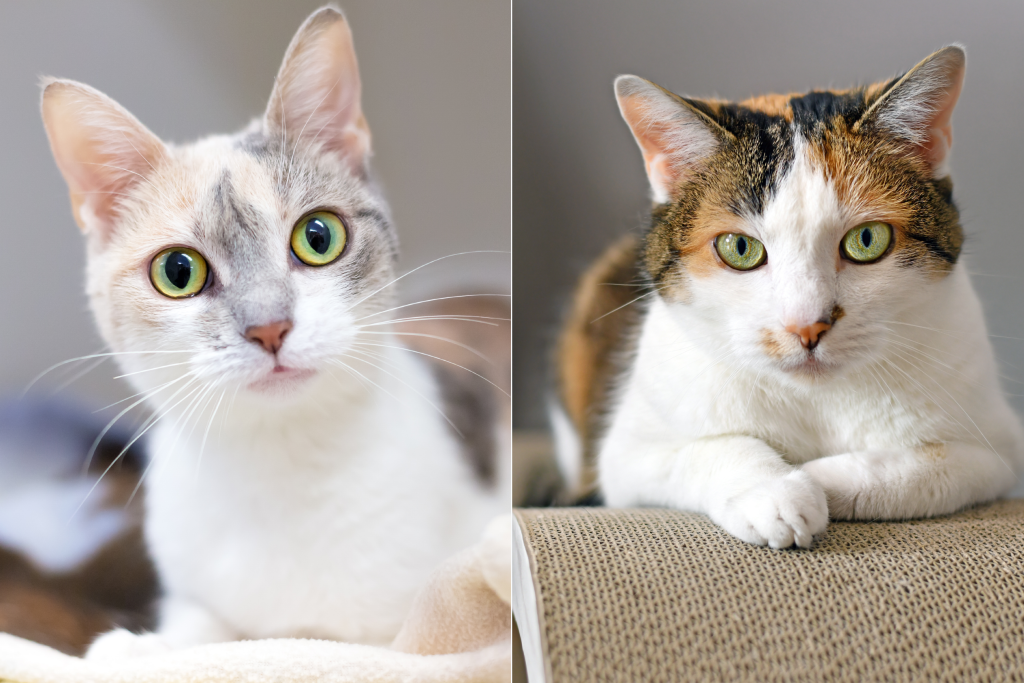
Getty Images, Mary Swift and Firn
Much like tortoiseshell cats, calico cats are not a recognized breed; the term just refers to the coloration of a cat's coat. The calico color pattern can pop up in a lot of different cat breeds and mixed breeds, including the tail-less Manx, the American shorthair, Maine coon, the British shorthair, Persian, Japanese bobtail, and the Turkish Angora.
There are three types of calico cats: the standard calico, the "caliby," which is a mix of calico colors and tabby cat stripes, and lastly, a dilute calico.
Dilute calico cats are exactly what the name implies: They have the same coloring as calico cats but those hues are diluted—meaning dilute calicos are calico cats with less intense coloring. While the standard calico cat has distinct patches of white, black, and orange, dilute calico cats have less distinct lighter coat colors of a smoky-gray or blue-gray, white, strawberry-blond, and cream color.
All dilute calicos have lighter coloring than their traditional counterparts. Other than blue, white, and cream, dilute calicos can also come in colors such as white, lilac, and cream or white, fawn, and cream.
Are Dilute Calicos Rare?
Dilute calicos are, genetically, more rare than other cat colorings. Dilute calico kittens get their unique light coloring by inheriting the dilute gene, as well as a combination of complex genetic markers, to get that beautiful coat coloring.
Not only do dilute calicos need to inherit the calico coloring gene from a parent, they also have to inherit the dilute gene. The dilute gene is recessive, and it needs to be inherited from both of a kitten's parents in order to be expressed in its coloring.
Which Gender of Calico is Rare?
A cat's coat coloring is linked to genetics, and because of this, most calicos are female cats. The same is true for tortoieshell colored cats, too.
While male calico cats do exist, only 1 in every 3,000 calico cats is male, according to Bruce Kornreich, doctor of veterinary medicine at the Cornell Feline Health Center. These male calicos have Klinefelter's syndrome, a rare genetic condition that causes the cat to have an extra X chromosome (making them XXY), which carries the coat coloring gene.
What's the Difference Between Tortoiseshell and Dilute Calico?
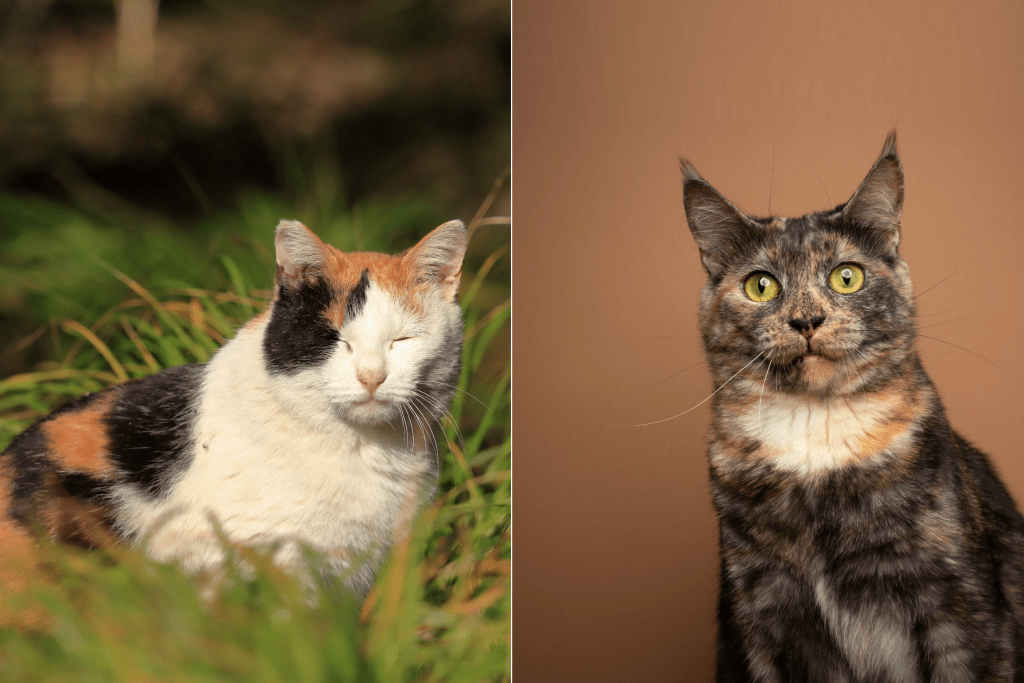
Getty Images, Queserasera99 and Nils Jacobi
Dilute calicos—and calicos in general—are not to be confused with tortoiseshell cats (also known as "torties"). Although the two have similar coloring, the significant difference that distinguishes torties from calicos is that tortoiseshells have a black-based coat, while calicos have a white-based coat.
Tortoiseshell coats only have two colors: black and orange. They don't have any white fur. Calicos and dilute calicos, on the other hand, have a third coloration gene present that gives them large areas of white fur. Genetically, calicos are very similar to torties, except that they have a "white spotting" gene.
While both calicos and tortoiseshells are known to be spirited cats, tortoiseshells also have the infamous "tortie-tude," and can be quite independent and sassy. Calicos are typically more mellow in personality.
READ MORE: This Map Shows the Most Popular Type of Pet in Every State
